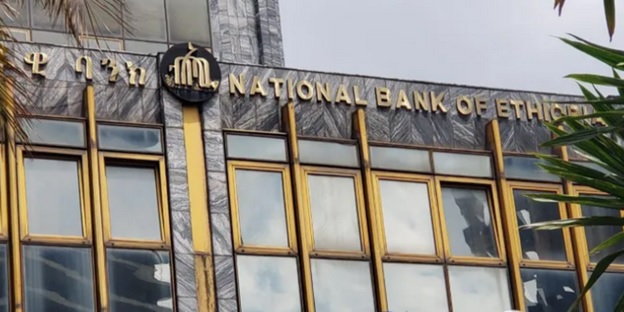
BY MENGISTEAB TESHOME
In recent decades, developed and developing countries increasingly allow banks to be foreign-owned. However, many Sub Saharan African countries are unwilling to open the banking industries to foreign ownership. Will policies that encourage international banking sector integration spur economic growth in developing countries? The role of foreign banks in developing countries has been hotly debated and the issue is still far from conclusive effects. International Monetary Fund (IMF) and the World Trade Organization (WTO) consider that banking sector integration spurs economic growth in developing countries.
By bringing additional capital, allocation of funds for profitable users, exerting corporate control, and enabling risk management, foreign banks may directly boost capital accumulation and accelerate long-run economic growth.
A number of documents confirm that the entry of foreign banks brings large benefits to host countries’ financial systems and economies at large. Benefits stem from efficiency gains brought about by new technologies, products and management techniques as well as from increased competition stimulated by new entrants. Moreover, as foreign banks may have greater access to resources from abroad, they have more stable funding and lending patterns than domestic banks. They also hold a more geographically diversified credit portfolio and hence would not be as affected during periods of stress in the host country.
Another important issue for Emerging Market Economy (EME) is related to impacts on connected lending practices by banks. In EME where wealth is highly concentrated it is common that banks’ board members, stakeholders and large borrowers are closely related. Foreign banks do not get involved in connected lending both because they do not have related parties in the host country and their widely held equity structure does not encourage this kind of behavior.
At the same time, foreign investment in the financial sector raises some concerns. The greater participation of foreign institutions might expose host economies to events taking place in other countries where their foreign banks operate. On one hand, international banks have access to more investment alternatives and thus are more prone to “cut and run” than domestically owned banks when their investments are not performing as expected. On the other hand, local stakeholders in EME face greater transaction costs and usually have vested interests that prevent them from unloading their financial investments. Further concerns arise because modern technologies used by large foreign banks rely mainly on hard data not always available in EME especially for small and medium enterprises;
Therefore, banks could end up rationing credit to this type of firms or increasing risks borne by domestic institutions attempting to serve more opaque customers as a result of greater competition.
In an effort to ensure and advance financial inclusion, Ethiopia is opening its market to the foreign banks. Finance Minister, Ahmed Shide said that the decision to open up the banking sector to foreign investors will help to attract Foreign Direct Investment (FDI), creating service competitiveness.
As the Council of Ministers has recently passed a landmark decision to open the Ethiopian banking sector to foreign investors, preparation is underway.
In an exclusive interview with local media, the finance minister said the National Bank of Ethiopia is working on the details of the regulatory aspect, which will be submitted to the Council of Ministers, and then to the parliament in the coming few months.
Opening of the banking sector for foreign direct investment (FDI) is part of the Homegrown Economic Reform program that has been implemented, he added.
“Once operational, it (the policy) will attract significant investment into the country in terms of additional finance and will expand the banking sector in general. It will also introduce competition in the banking sector, further boosting the financial inclusion agenda of the government and modernizing the banking sector.”
According to him, Ethiopia is striving to improve the investment climate and attract private sector investment and this historic decision will boost the competitiveness of the financial sector by unlocking the potential of the financial market.
On top of improving macroeconomic imbalance, the decision will help to create an efficient, technologically equipped, and competitive banking industry that triggers critical chain effects on all economic activities.
“So, significant investment will be facilitated as a result of this, and by introducing additional capacity, competition, modern technology, and new financial services, (it) will further boost the financial sector in general, advance our financial inclusion agenda and enable more of our business sector,” the minister elaborated.
Domestic banking sector has been enjoying a lot in the past in terms of growth, Ahmed stated, adding that “their growth will be enhanced as a result of this competition. They need to consolidate, upgrade, and be ready for the competition.”
Over the last four years, total assets of the local banks have soared from 1.3 trillion Birr to 2.4 trillion Birr, registering 92% growth; while total deposits increased from 899,811 billion Birr to 1.7 trillion Birr.
The number of banks has increased from 18 to 30 with the total capital of banks jumping from 98.9 billion Birr in 2019 to 199.1 billion in 2022, registering 27 percent average yearly growth.
Foreign banks may influence long-run economic growth directly through bringing additional capital, new and better skills, management techniques, training procedures, technology, and products to the domestic market. It also facilitates risk management and improves the efficiency of resource allocation in ways that accelerate long-run economic growth. By contesting markets and sharpening competition, foreign banks raise the overall level of banking sector efficiency. Thus, domestic banks provide better services; domestic banks become better at mobilizing savings, energetically seeking profitable uses for these savings, exerting corporate control, and easing risk management in ways that accelerate long-run economic growth.
As the role of foreign banks with respect to banking stability has been a topic high on the policy and research agenda since the start of the global financial crisis. Conceptually, foreign banks may influence financial fragility in both positive and harmful ways (Levine, 1996). In terms of potential harms, foreign banks are often accused of stimulating capital flight. Thus, in stressful times, foreign banks will flee; may facilitate capital outflows, currency crises, and financial instability, which in turn can hurt the supply of credit by these affiliates in the host market. Contrasting arguments, however, suggest foreign bank activity may not intense fragility may even enhance stability. It is important to realize that foreign banks can offer valuable diversification services and can absorb shocks occurring in the host market. Several studies have highlighted how foreign banks can enhance financial stability and improve economic growth when crises occur in the host country.
The Ethiopian Herald 9 October 2022





